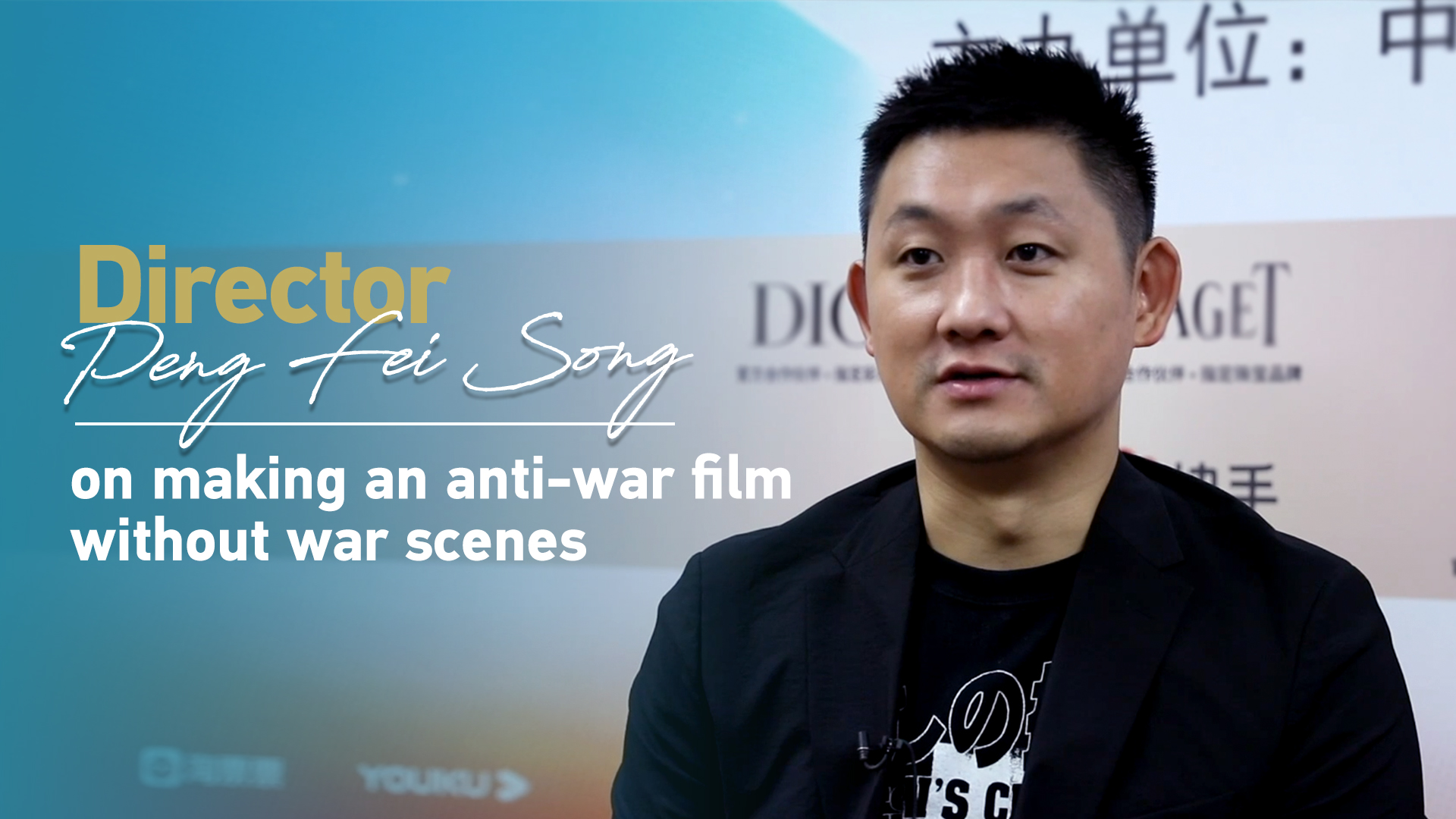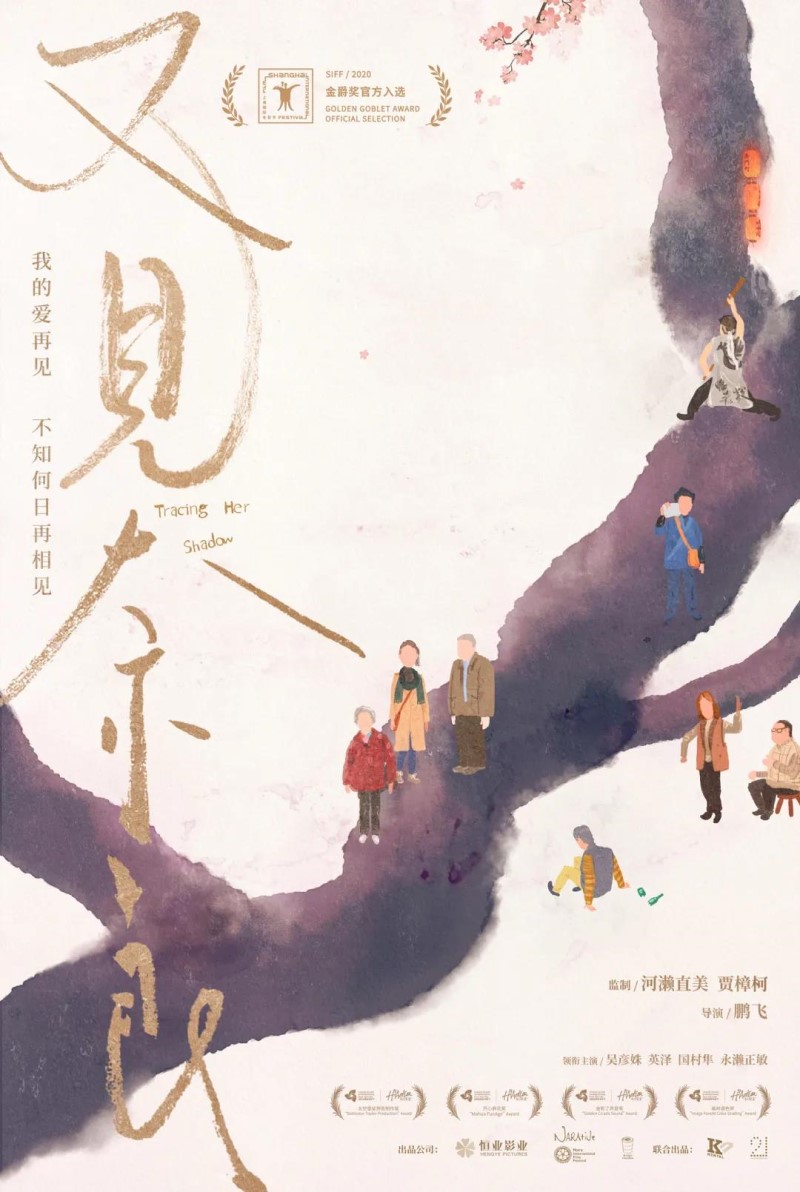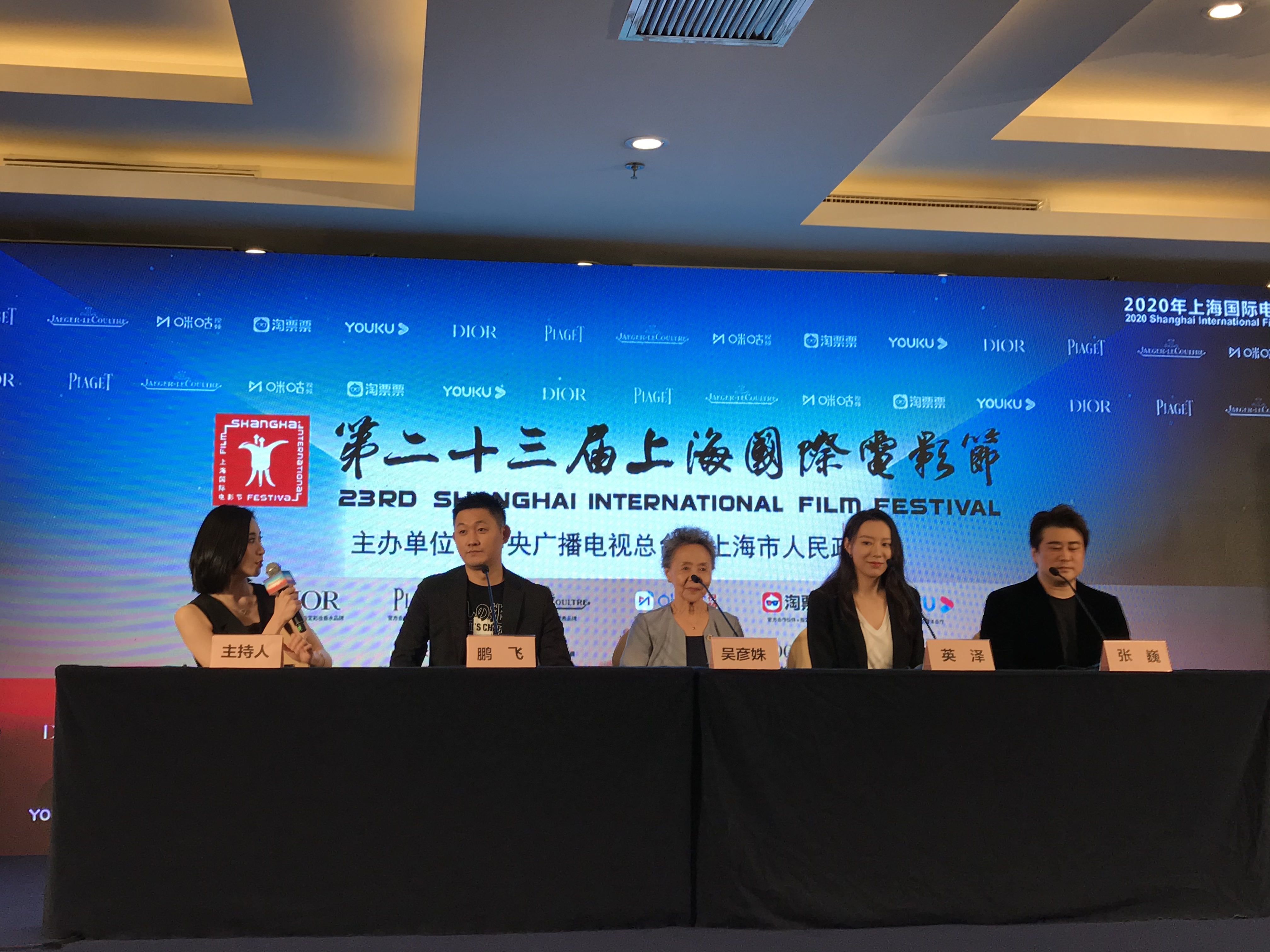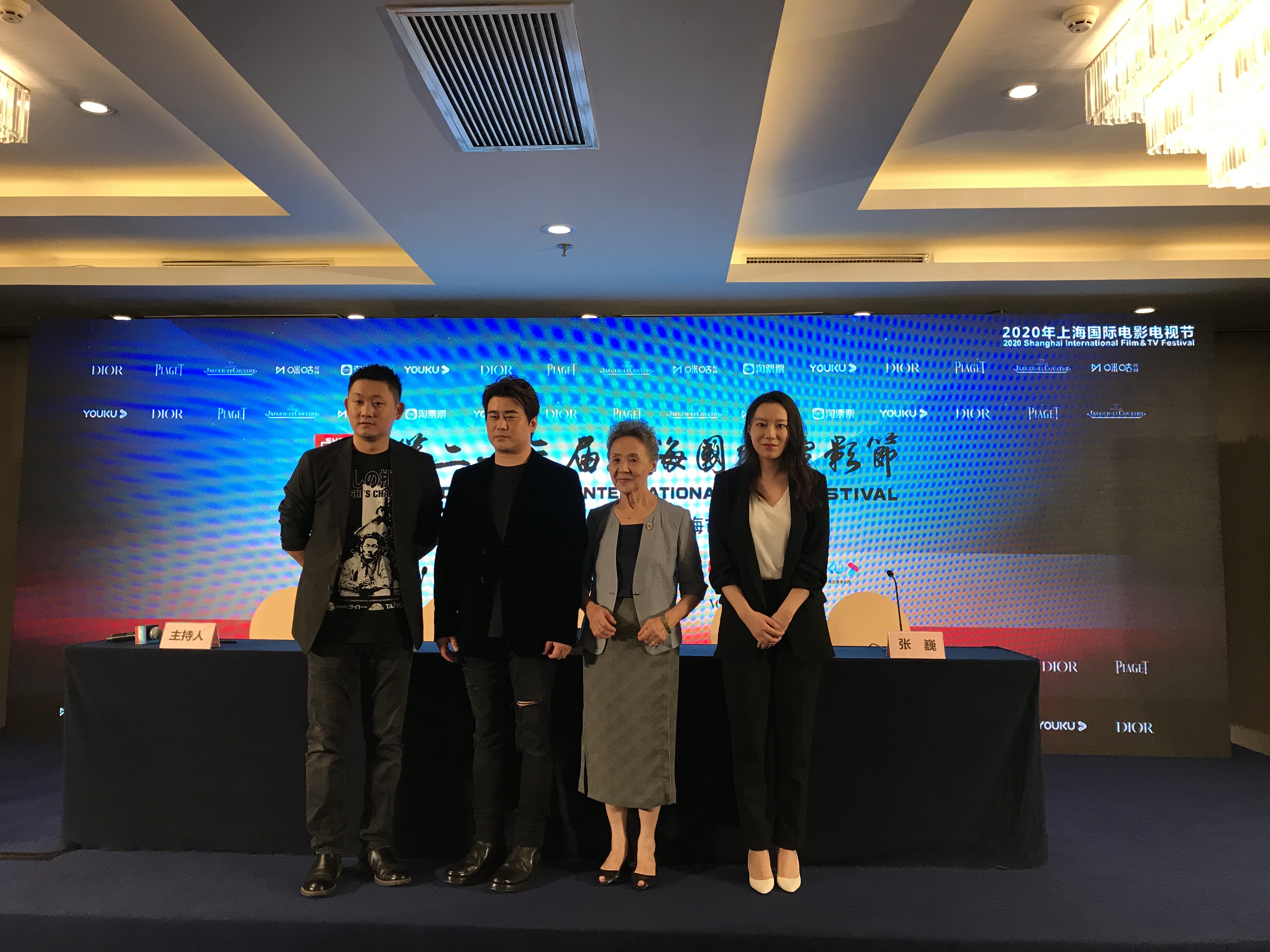04:18

Would you take your enemy's child under your wing? It might be unimaginable for many, but that's exactly what Chinese women did in the aftermath of the Japanese army's retreat from the country in 1945.
It's a story that director Peng Fei Song chose to tell in his new movie Tracing Her Shadow, which premiered on Friday at the Shanghai International Film Festival.

Movie poster of Tracing Her Shadow./SIFF
Movie poster of Tracing Her Shadow./SIFF
The movie follows an old Chinese woman on a trip to Japan in search for her daughter whom she adopted in post-WWII China, but with whom she had lost contact for years after the girl returned to Japan. A younger woman, who is the daughter of an adopted Japanese orphan, and a retired Japanese policeman join the search. Peng Fei tried to make an anti-war movie with no war scenes, instead opting to highlight the stories of ordinary people.
The final cut of the movie was completed just hours before it premiered, at two o'clock in the morning on July 29, eventually making it to the festival.
At a press conference held on Friday in Shanghai, the director said that the idea for a Sino-Japanese co-production came about in 2018, when he met director Naomi Kawase, who later became a producer on the project, at Nara International Film Festival where his movie The Taste of Rice Flower was shown.

Members of the film crew meet with the press during Shanghai International Film Festival. /CGTN
Members of the film crew meet with the press during Shanghai International Film Festival. /CGTN
Peng Fei said the two countries share a long history, although it hasn't always been a smooth relationship.
Looking to tell an anti-war story from the perspective of people who had to deal with its consequences, he focused on the history of Japanese orphans and their Chinese adoptive mothers. In 1945, after the Japanese army retreated, Chinese women raised their children. When the two countries resumed diplomatic relations, the children returned to Japan and needless to say, the separation was painful.
While looking for Japanese war orphans who were still alive in 2019 to learn about their stories, Peng Fei found himself in a village called Yoshino, outside the city of Nara. There, he was directed to a small grey house sitting on a mountain. After a trek, he saw an old couple working the land near the residence. Upon introducing himself as a filmmaker from Beijing, the old man spoke with him in a northeastern Chinese accent, leaving Peng Fei surprised.
During the presser, 82-year-old Wu Yanshu, who played the adoptive Chinese mother, said she was touched by the sincerity of Peng Fei's treatment of the topic and was deeply attracted to the character she portrayed because the woman had no hatred in her heart and raised the Japanese orphan like her own.

Members of the film crew meet with the press during Shanghai International Film Festival. /CGTN
Members of the film crew meet with the press during Shanghai International Film Festival. /CGTN
CGTN got to sit with the director for a one-on-one interview. Below is a transcript of the interview, edited for brevity and clarity.
CGTN: What was the inspiration behind your story on Japanese orphans during World War II?
Peng Fei: When I decided to make a Sino-Japanese co-production film, I knew that it should be a story with a historical background. There is a long and painful history between China and Japan, and I wanted to make an anti-war film. But it's not necessary to have war scenes in an anti-war movie. I wanted to focus on ordinary people. The foster mothers of Japanese orphans displayed the best in humanity. Right after the Japanese army retreated in 1945, the Chinese mothers raised the enemy's children. It was a very noble and humanitarian act on their part, and I am moved by their actions.
CGTN: What do you think helped Chinese mothers establish ties with Japanese children despite the tense relationship between the two countries?
Peng Fei: This is the kind side of human nature. In a book I read about Japanese orphans and their Chinese adoptive mothers, a reporter asked one mother why she raised the enemy's child, and she said that the cries of children are the same all over the world. She couldn't watch a child cry and not take care of her. I think this is the glory of human nature.
CGTN: What is the significance of holding this year's Shanghai International Film Festival?
Peng Fei: It's very important because the cinemas have been closed for so long, and all filmmakers and audiences have been looking forward to them reopening. The Shanghai International Film Festival is the first major international film festival in China after the pandemic. That's why as a Chinese filmmaker, I chose the Shanghai International Film Festival as the first publicity stop for the film.
CGTN: During the pandemic, there were sensational reports on discrimination against certain races and cultures. Do you think the pandemic has brought everyone closer or pushed people further apart?
Peng Fei: I think for most people, we still have to continue to work hard together to live a better life. Our crew chose to not compromise the quality of work even amid a pandemic. For example, our editor insisted on working when the pandemic was really serious, so we both wore masks to review video clips. I was watching the clips from the other side of a glass, and he was there inside the glass room. The soundtrack was composed by an old Japanese composer. We held a lot of three-way video conferences – the translator was at home, I was at home, and the composer was at home. The communication between me and director Naomi Kawase and director Jia Zhangke, who are the producers of the movie, were all done online. The cost of communication has increased, but everyone took it very seriously. Director Jia Zhangke helped me edit, while Naomi Kawase wrote her opinions on every second of the film, and translated them into Chinese in detail. I think for us, art creation was not interrupted by the pandemic.
CGTN: Would the pandemic change the film industry and moviegoers' viewing habits?
Peng Fei: I can't say that watching movies on the internet is not good, but the viewing conditions are not so good. From preparation to shooting to post-production, every part of the film production is done on the premise that audiences are going to catch it in a cinema theater. For example, which sound comes from which speaker? Next, the composition of every frame is also made for the big screen, to have a bigger visual impact. When the medium changes, the viewer will not be able to experience the movie's full magnitude, which is a pity.
Tracing Her shadow will be out in theaters at the end of 2020.
Reporter: Ai Yan, Zhang Xiaohe
Photographer: Zhang Wanbao
Videographer: Lu Chang, Wang Dawei
Cover image designer: Gao Hongmei
Project Manager: Zhang Xiaohe
Superviser: Zhang Shilei